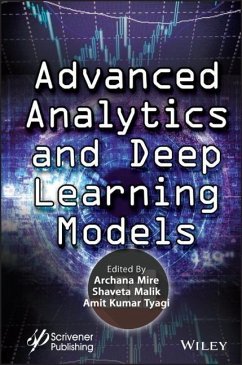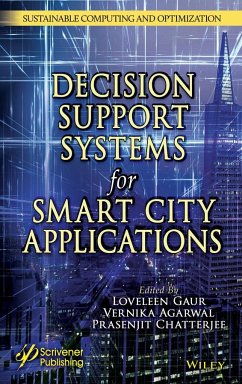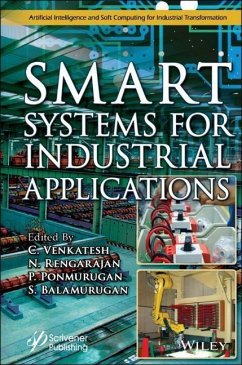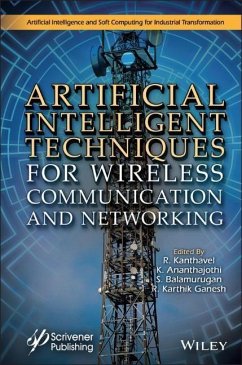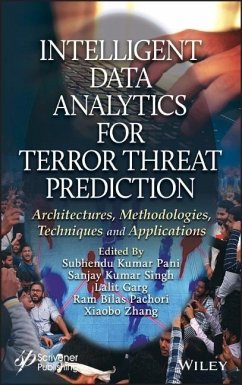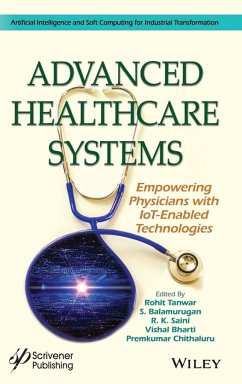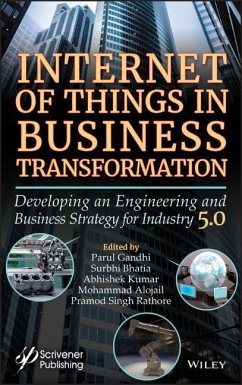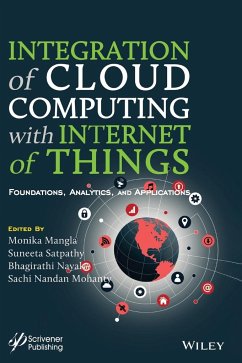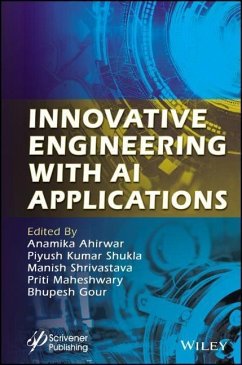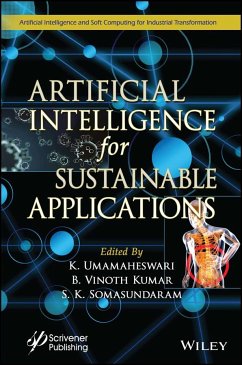
Hybrid Intelligent Approaches for Smart Energy
Practical Applications
Herausgegeben: A, John; Mohan, Senthil Kumar; Sanjeevikumar, P.; Hamid, Yasir
Versandkostenfrei!
Versandfertig in über 4 Wochen
174,99 €
inkl. MwSt.
Weitere Ausgaben:

PAYBACK Punkte
87 °P sammeln!
HYBRID INTELLIGENT APPROACHES FOR SMART ENERGYGreen technologies and cleaner energy are two of the most important topics facing our world today, and the march toward efficient energy systems, smart cities, and other green technologies, has been, and continues to be, a long and intricate one. Books like this one keep the veteran engineer and student, alike, up to date on current trends in the technology and offer a reference for the industry for its practical applications.Energy optimization and consumption prediction are necessary to prevent energy waste, schedule energy usage, and reduce the ...
HYBRID INTELLIGENT APPROACHES FOR SMART ENERGY
Green technologies and cleaner energy are two of the most important topics facing our world today, and the march toward efficient energy systems, smart cities, and other green technologies, has been, and continues to be, a long and intricate one. Books like this one keep the veteran engineer and student, alike, up to date on current trends in the technology and offer a reference for the industry for its practical applications.
Energy optimization and consumption prediction are necessary to prevent energy waste, schedule energy usage, and reduce the cost. Today, smart computing technologies are slowly replacing the traditional computational methods in energy optimization, consumption, scheduling, and usage. Smart computing is an important core technology in today's scientific and engineering environment. Smart computation techniques such as artificial intelligence, machine learning, deep learning and Internet of Things(IoT) are the key role players in emerging technologies across different applications, industries, and other areas. These newer, smart computation techniques are incorporated with traditional computation and scheduling methods to reduce power usage in areas such as distributed environment, healthcare, smart cities, agriculture and various functional areas.
The scope of this book is to bridge the gap between traditional power consumption methods and modern consumptions methods using smart computation methods. This book addresses the various limitations, issues and challenges of traditional energy consumption methods and provides solutions for various issues using modern smart computation technologies. These smart technologies play a significant role in power consumption, and they are cheaper compared to traditional technologies. The significant limitations of energy usage and optimizations are rectified using smart computations techniques, and the computation techniques are applied across a wide variety of industries and engineering areas. Valuable as reference for engineers, scientists, students, and other professionals across many areas, this is a must-have for any library.
Green technologies and cleaner energy are two of the most important topics facing our world today, and the march toward efficient energy systems, smart cities, and other green technologies, has been, and continues to be, a long and intricate one. Books like this one keep the veteran engineer and student, alike, up to date on current trends in the technology and offer a reference for the industry for its practical applications.
Energy optimization and consumption prediction are necessary to prevent energy waste, schedule energy usage, and reduce the cost. Today, smart computing technologies are slowly replacing the traditional computational methods in energy optimization, consumption, scheduling, and usage. Smart computing is an important core technology in today's scientific and engineering environment. Smart computation techniques such as artificial intelligence, machine learning, deep learning and Internet of Things(IoT) are the key role players in emerging technologies across different applications, industries, and other areas. These newer, smart computation techniques are incorporated with traditional computation and scheduling methods to reduce power usage in areas such as distributed environment, healthcare, smart cities, agriculture and various functional areas.
The scope of this book is to bridge the gap between traditional power consumption methods and modern consumptions methods using smart computation methods. This book addresses the various limitations, issues and challenges of traditional energy consumption methods and provides solutions for various issues using modern smart computation technologies. These smart technologies play a significant role in power consumption, and they are cheaper compared to traditional technologies. The significant limitations of energy usage and optimizations are rectified using smart computations techniques, and the computation techniques are applied across a wide variety of industries and engineering areas. Valuable as reference for engineers, scientists, students, and other professionals across many areas, this is a must-have for any library.




